Will Christmas Bells Ring for Nigeria's Persecuted Church?
They have been crying for so long, feeling like a largely ignored footnote in history.
Nigeria is an African country almost evenly divided between Muslims and Christians. The northern part of the country is predominantly Islamic, which becomes apparent from the fact that twelve states have adopted sharia (Islamic law). The southern part of Nigeria is almost entirely Christian. The so-called Middlebelt divides these two parts, and many violent attacks against Christians, including murder, torture, rape, and abduction happen on an almost daily basis in for example states like Jos, Plateau, and Kaduna. In the northern part of the country, there are also violent attacks against Christians, as well as abduction, forced marriage, and conversion of Christian women and girls.
According to persecution watchdog Open Doors more Christians are killed in Nigeria every year than in all other countries combined. On its annual ranking list of Christian persecution, Open Doors placed Nigeria at number six this year, moving up one place from last year’s seventh position.
Christmas Attacks
Last Christmas, December 25th, 2022, just before the church’s Christmas worship was about to commence in Angwan Aku (Kaduna), attackers entered the village, killing over 40 Christians, and another 58 of them were abducted. Before that day, in several other villages, such as Kagoro and Malagum (also in Kaduna state), more Nigerian Christians were murdered and abducted on December 18th and 23rd.
To hear from Nigeria’s persecuted church personally, I interviewed two Nigerian Christians, author, journalist, and filmmaker Albert Afeso Akanbi and police inspector John (full name for safety reasons not given). The latter has over 30 years of experience on the job. We discussed what Christmas is like for the persecuted church, whether Nigerian leaders are committed to trying to prevent such attacks, and what is behind all the hatred against followers of Christ in the country. We also discussed the apathy of the West to address the brutal reality Nigerian Christians face every day. Here are their stories.
Albert
SD: “In many African countries such as Nigeria, but also Burkina Faso, Mali, and Niger, Christians today are heavily persecuted. Many are internally displaced, abducted, and even murdered for their religious belief. This constant threat hardly reaches the news in the West or elsewhere, how do Christian communities in Nigeria view this seemingly lack of interest by others you think?”
AA: “Let me appreciate you for writing an article about that, about issues that are affecting Christians in Nigeria, because so far, Christians in Nigeria appear to have been almost forgotten. These issues do not reach the mainstream media. It is people like us who usually try to push these issues and the plight of Nigerian Christians on social media. I understand your concern about this lack of interest, especially in the Western media, because of the huge platforms they control, but I also want to say that the issue is more complex, with many factors leading to the complexity of it.
“According to people who have looked into the issue of persecution, these religious tensions between Muslims and Christians in Nigeria have been going on for many years. From the seizure of land and burning of churches to even allowing Christians to hold church services in the north, the issue has been ongoing for so long. According to the Abuja Declaration, if you search this online, it will show you that Muslims have outlined a roadmap, a plan, to conquer the entire country for Islam. They now have made some adjustments to this document, but we know this was there at some point. Government officials will say these tensions come from a competition between Muslims and Christians over land, but I don’t believe that is true. There is more behind it, it is a competition of who controls the country, a competition for the soul of the country.
“Not one single non-Muslim will be allowed to hold any particular position of power in the country. Some believe in a conspiracy theory. I myself am one of them, that there is an agenda behind all of this to prevent Christians from holding any influential position in Nigeria. I believe that those who are financially pushing this agenda are from some very rich countries like Saudi Arabia that export the Wahhabism style of Islam. So, the point that I am trying to make is that there are people who believe that one of the factors that is leading to the persecution of Christians in Nigeria is an agenda to ensure that Islam will dominate our country.
“International Christian Concern (ICC) at one time wrote that Christians in Nigeria’s north and middle belt are experiencing a twenty-year-long genocide. They also described our country as the worst country in which to be a Christian. I think this started from the time of Yar'Adua (Musa Yar’Adua, Nigerian president from 2007 to 2010) because Boko Haram’s persecution started at the time he was president of Nigeria. This is still going on today, under Buhari his presidency it was worse, thousands of Christians were murdered. People got so used to the killing, that when you would hear or read about it in the headlines, you would just say, ‘Oh, that is sad, and continue with your meal.’ Nigerians became so insensitive to the situation, that we did not feel anymore and that still happens.
“With regard to your question about the lack of interest in the suffering of Christians in Nigeria from the Western press, the attitude here is more like a resignation, people have gotten used to this. They have been crying for so long and if you watch BBC, CNN, and other media outlets, the killing of for example a hundred Christians in Kano State inside a church will get one minute of their airtime, while at the same time, when Biden sneezes in the White House, that will get much more coverage, if you know what I mean. We are just a footnote and are largely being ignored. I understand they too have limited time and space for coverage, but given the choices they make, ignoring so much of what is happening here, it shows how unimportant we are to them.”
SD: “Christmas is coming. Often, especially during Christian celebrations, terror groups attack churches. We have seen many such attacks over the past decades. Are people still going to celebrate Christmas at their local churches? Could you explain something about how fear of terror affects their spirit?”
AA: “People will still celebrate Christmas in the north, they will still go to church, to Christmas mass. All across the country, Christians will still go to church and worship, as well as for New Year, whether there will be terrorist attacks or not. The only thing that I know, if you look at what has previously happened, many churches took extra security measures. Some churches have received threats and after that, some were able to hire soldiers to protect them, but that is for those who can afford it. Christians living in the north, in the villages, are risking themselves to ensure they will have celebrations. People will definitely celebrate.”
SD: “How is it, given the fact that more Christians die every year in Nigeria than in any other country for their faith, do you think the current government (Tinubu) is dealing with this? Are local authorities for example helping Christian communities prepare for possible attacks during Christmas time? Are the Christian communities backed by the government? Do they feel protected?”
AA: “If there are no attacks during this Christmas season, it is not because of any special government action, but because of the initiatives people are taking on their own. If there is an attack, this government will do what governments before have done; they will bring in more police and tanks, trying to quell the matter without digging deeper to find out the root causes of the problem and solve it once and for all. So, there is nothing new that Tinubu is going to bring to the table, it will be business as usual. Whatever safety measures Nigerian Christians will have this Christmas, it will be due to their own efforts and not from the government.
“In the north of Nigeria, when an average Christian on an average Sunday goes to church, that person is putting his or her life on the line. There was a time when every Sunday one or two churches were raised down by terrorists. There now appears to be some respite, but I think this is only because there is a lack of media attention to these attacks. Christians in the north continue to be persecuted. They are the true Christians, imagine picking up your Bible and going to church on Sunday means risking your life every time, again and again.”

John
SD: “Last year, in 2022, there were several attacks on churches and Christian communities in Nigeria. Open Doors and others have warned that violent attacks are increasing in the southern part of the country as well. How do Christian communities prepare for Christmas this year? Are people looking forward to Christmas, are they afraid as far as you know? Do people at all talk about their fears or rather remain silent concerning these increasing threats?”
John: “Yes, there was a rise in Christian killings and abductions within that period you mentioned, especially in Kaduna and some far northern states. All Christians look forward to Christmas this year, I would say, but with a little less expectation. Their purchasing power has been slashed by runaway inflation by, let's say; over a hundred percent. And that, their financial insecurity, again makes the Christians very very vulnerable.
“Most Christians in the far north of Nigeria are into farming, it is their way of living, but today most, approximately seventy-five percent of them, can no longer go to their farms for fear of being killed or kidnapped for ransom by Islamic jihadist groups operating within those areas.”
SD: “Do you know which specific group is behind these attacks?”
John: “There are so many groups that have infiltrated from around Nigeria's borders, especially since the last Buhari administration (the former president of Nigeria, red.). They came from Mali, Chad, Niger Republic, Senegal, even the Central African Republic.”
SD: “So do you and your colleagues within the police force talk about Christian persecution, about the violence Nigerian Christians face every day?”
John: “Yes, but only in hushed tones otherwise the police authorities will say you are trying to incite or provoke religious tensions among people from different faiths.”
SD: “About those police authorities; do local authorities connect with Christians in these areas where attacks are happening almost every day to plan protection or instruct you about government aid to the persecuted? After all, these attacks are very likely to occur during Christmas, just as we have seen last year and the years before.”
John: “No, nothing at all, the local authorities don't do anything like that. There is a sort of political correctness you could say, also among Christian police officers, where people do not want to talk against the federal government or [do] not want to offend anybody by suggesting that this Christmas again Christians might get attacked during church services. So, everybody just glosses it over or pretends that it's not serious by saying "It is well"! That "It is well" for us in Nigeria is just another way of saying that the speaker has resigned him- or herself to fate and is not willing, or ready, or able to do anything that can change that status quo.”
SD: “Do you mean that the people higher ranked than you and your workmates, ignore the increase of violent threats specifically aimed at Christian holidays such as Christmas and Easter, and you can only talk about it in a hushed way, so basically, when there is an attack, it is treated as an incident, but there are no prevention plans even after all these years of increasing violent attacks?”
John: “Yes, absolutely correct. There is no special sense of urgency that we need to be alert specifically during this time or anytime really. No prevention plans and even when any of those jihadist terrorists are caught by local vigilantes, no prosecution will follow. Instead, the very next day you will see them freed from detention and posing more risks to the very same communities that they attacked.”
In addition to what the police inspector, John, is saying here, Open Doors writes in its country dossier about Nigeria from 2022 that under former president Buhari, many Muslims have been appointed to several significant posts within the federal government, state governance, and judiciary in all of Nigeria, including the southern Christian majority states. This, Open Doors warns, makes it increasingly difficult for Christians to defend their rights in those states.
John: “As for the media and the government approach to the persecution of Christians you were asking about, the government does not like us using the appellation "Islamic" concerning terror attacks or groups. The media just announces the deaths, rapes, abductions et cetera, without calling it what it is. They use all sorts of names instead, like bandits, unknown gunmen, kidnappers, and so on. The media houses are gagged never ever to even mention or report about these incidents, if they do, they use veiled language.”
Some Christian journalists from Nigeria who reported about the violence against their co-religionists have been arrested and jailed, for example, Luka Binniyat (Epoch Times) and Steven Kefas. The latter even had to escape Nigeria for his own safety after receiving many death threats.
The Center for Justice on Religious And Ethnicity in Nigeria (CJREN) last week accused the governor of Borno State, Babagana Zulum, of deliberately excluding Christians from Federal Government palliatives and assistance. CJREN even claimed that money raised for victims of Boko Haram and other terror groups never reaches the Christian community which is most of the time at the receiving end of these terrorist attacks. According to CJREN Director-General reverend Kallamu Dikwa, Christians who became internally displaced persons after terrorist-related attacks are still in refugee camps, while Muslim victims have been able to find new homes.
Last week, on December 22nd, terrorists from Islamic State West African Province (ISWAP) attacked a police station in Borno State and killed a police inspector. In the northern states of Nigeria, where Islamic law (sharia) has been implemented, the hisbah (Arabic) police is enforced to make sure people observe sharia law. This is supposedly only for Muslims, however, Christians too are put under pressure to obey Islamic law. In Kano State, for example, in November this year, five Christian girls were harassed by this so-called hisbah police who also prevented them from going to church, telling them to dress like Muslim women and that they would get punished if they attended church. Only after church service had ended that day, and three hours after they were taken in, the girls were finally released.
To sum things up, the above stories demonstrate the tensions, threats, and deadly attacks Christians in Nigeria face on an almost daily basis. Over the years they have become more and more powerless while violent attacks are increasing and the world chooses to look the other way. Last year, in 2022, over 5,000 Christians in Nigeria were murdered in cold blood for their faith. With Christmas only a few days away, one wonders how much more they will have to suffer.
The latest news is that in Plateau states, over 160 people were killed in several attacks on Christmas Eve, likely by Fulani militants.





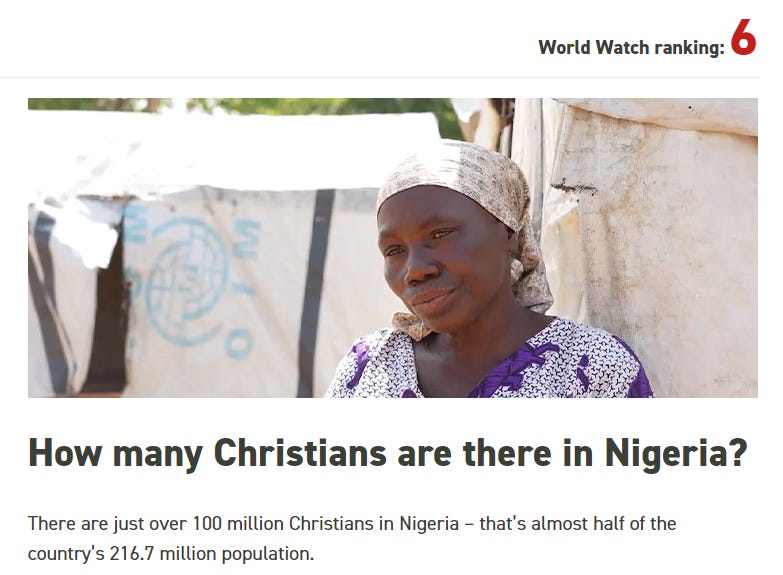
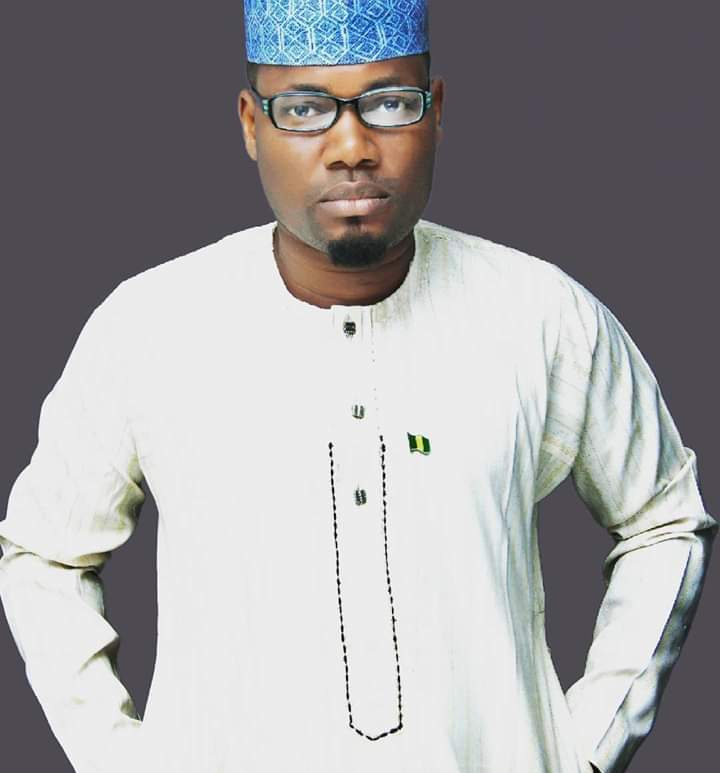
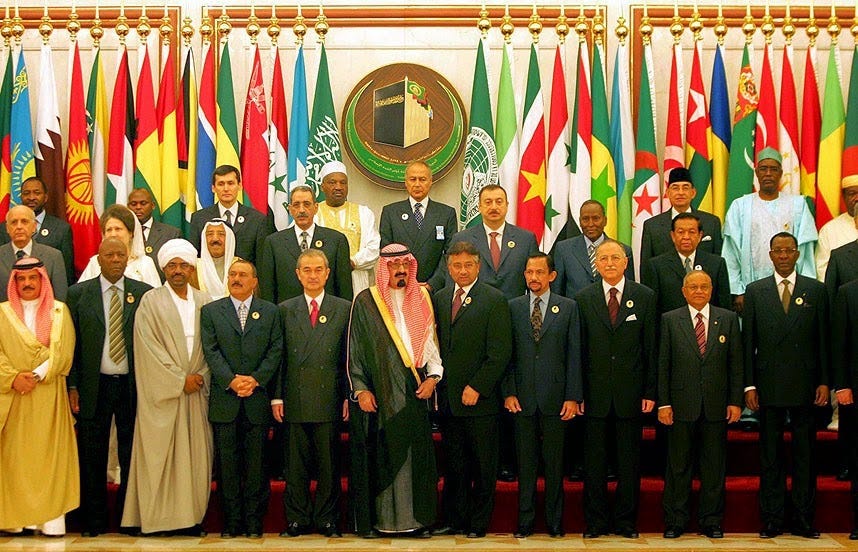
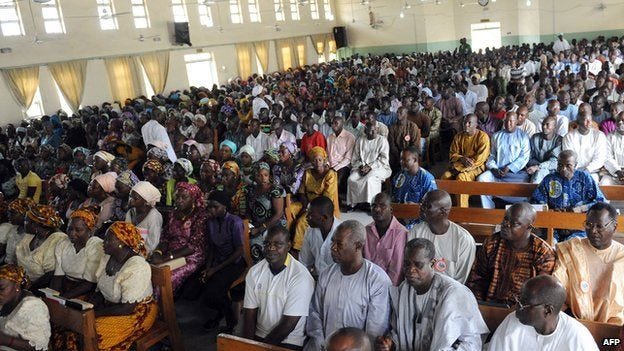
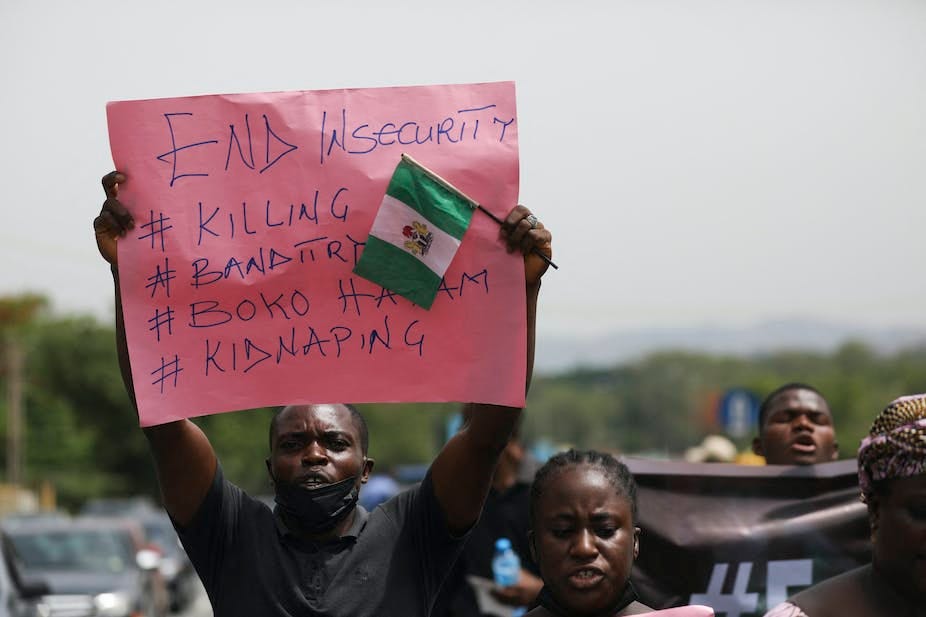
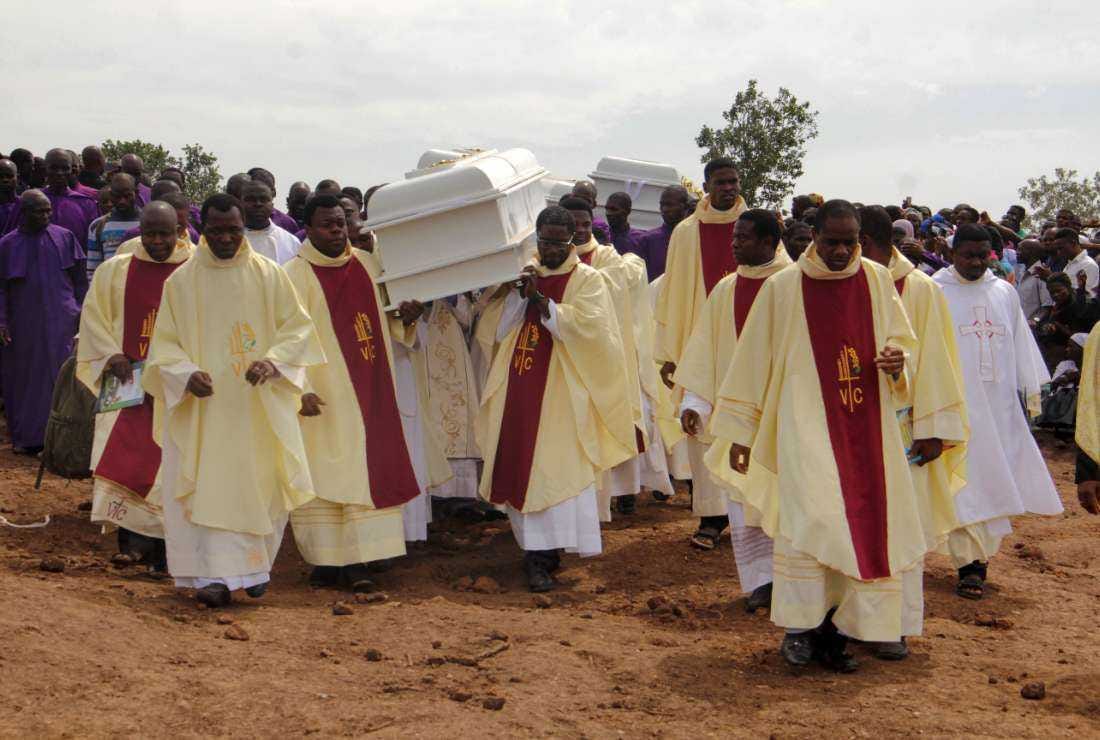
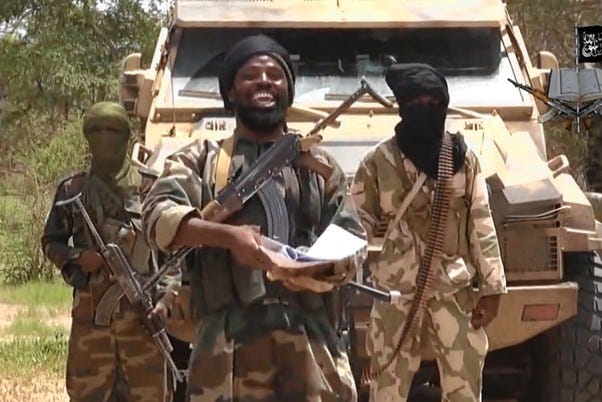
Thank you for covering this. The media and NGOs have ignored Christian persecution for decades. Over time we can no longer attribute to stupidity what can only be explained by malice...